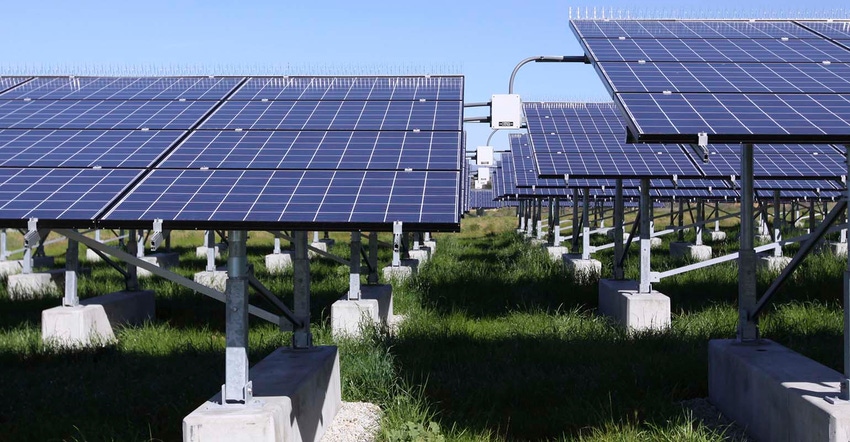
By Brian Eckhouse
President Donald Trump said in a proclamation that it’s necessary to eliminate a loophole his administration granted in 2019 that’s helped solar developers avoid tariffs on certain imported panels.
In Saturday’s proclamation, Trump said it’s necessary to revoke the exemption for two-sided “bifacial” panels, contending that the loophole has “impaired and is likely to continue to impair the effectiveness” of tariffs intended to bolster U.S. solar manufacturing.
Because of that, Trump said in the announcement, it’s also necessary to set tariffs for the fourth year covered by a solar quota regime at 18%. The tariffs had been set to drop to 15% from 20% in their fourth year.
Trump also asked the U.S. Trade Representative to request that the U.S. International Trade Commission investigate whether action continues to be necessary to prevent “serious injury” to U.S. interests.
It’s the latest move by the Trump administration to revoke a loophole that’s allowed U.S. clean-power developers to import bifacial panels duty free since mid-2019. Earlier efforts have thus far been stymied.
Trump’s proclamation drew backlash on Sunday from the Solar Energy Industries Association, a Washington-based trade group.
“The Trump administration decision this weekend to expand solar tariffs and evaluate an extension of those tariffs counters critical needs of our country right now, jeopardizing jobs, economic recovery in the face of a pandemic and a clean environment,” Abigail Ross Hopper, SEIA’s president and chief executive officer, said in a statement. The group will “evaluate every option to reverse this harmful approach,” she said.
Trump in early 2018 approved four years of tariffs, starting in year one at 30% and to be reduced by 5 percentage points in each subsequent year. The tariffs were a step toward following through on a Trump campaign promise to get tough on China, which dominates solar panel manufacturing, and boost the U.S. industry.
The Trump administration’s subsequent move in 2019 to grant bifacial panels an exclusion surprised many companies in the solar industry. While bifacial was considered a niche product, the tariffs had encouraged some new U.S. solar manufacturing, and duty-free module imports posed a threat. The administration soon began a push to revoke it’s own exemption, but efforts to do so have been blocked by a U.S. trade court.
--With assistance from Justin Sink.
© 2020 Bloomberg L.P.
Read more about:
SolarAbout the Author(s)
You May Also Like




